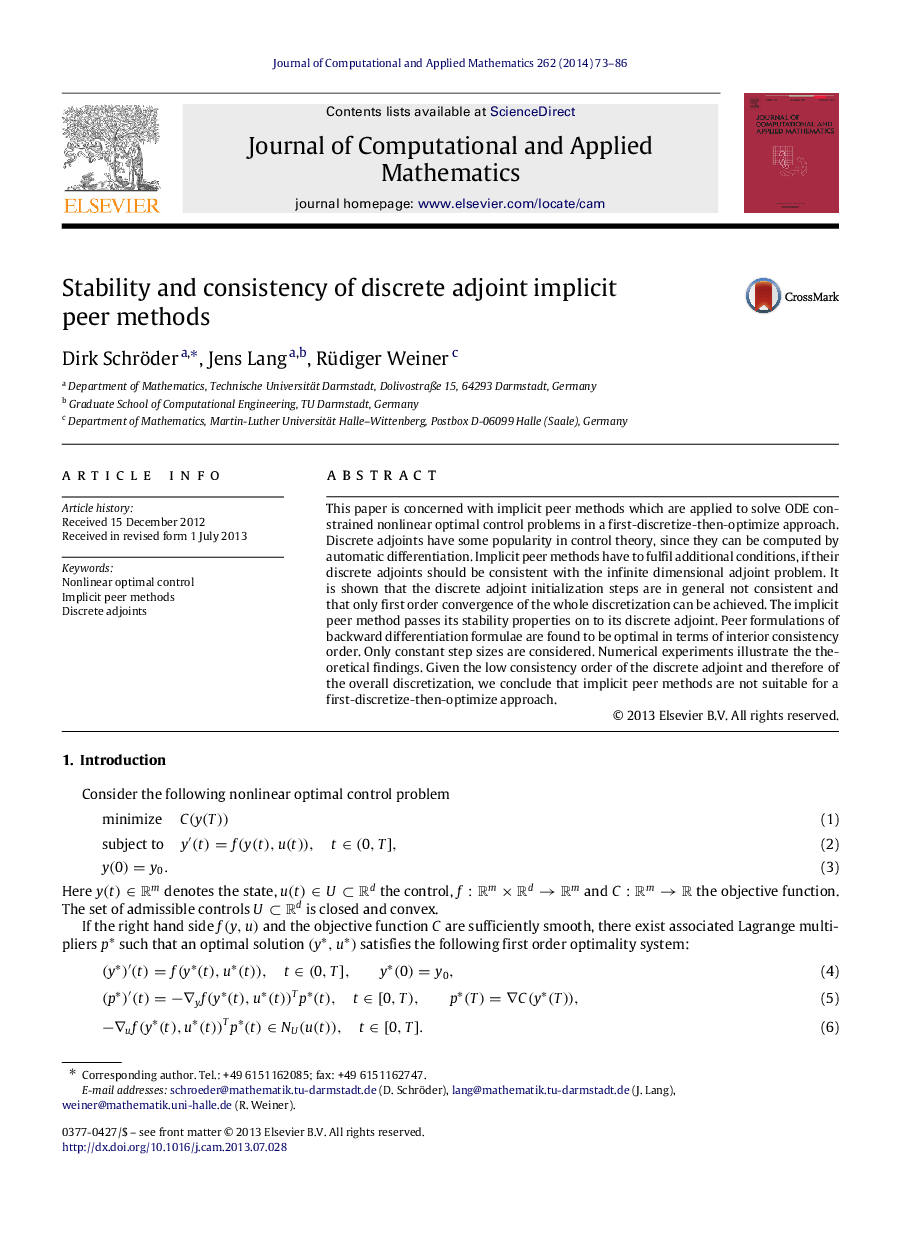| Article ID | Journal | Published Year | Pages | File Type |
|---|---|---|---|---|
| 4638960 | Journal of Computational and Applied Mathematics | 2014 | 14 Pages |
This paper is concerned with implicit peer methods which are applied to solve ODE constrained nonlinear optimal control problems in a first-discretize-then-optimize approach. Discrete adjoints have some popularity in control theory, since they can be computed by automatic differentiation. Implicit peer methods have to fulfil additional conditions, if their discrete adjoints should be consistent with the infinite dimensional adjoint problem. It is shown that the discrete adjoint initialization steps are in general not consistent and that only first order convergence of the whole discretization can be achieved. The implicit peer method passes its stability properties on to its discrete adjoint. Peer formulations of backward differentiation formulae are found to be optimal in terms of interior consistency order. Only constant step sizes are considered. Numerical experiments illustrate the theoretical findings. Given the low consistency order of the discrete adjoint and therefore of the overall discretization, we conclude that implicit peer methods are not suitable for a first-discretize-then-optimize approach.
